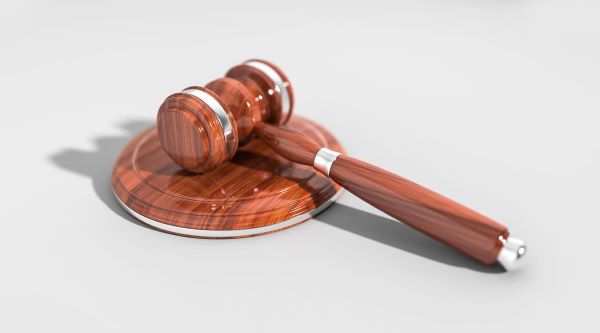 An OUI, or operating under the influence, in Massachusetts is the same as DUI, driving under the influence, or DWI, driving while intoxicated, in other states. Although called by different names, all 50 states have very similar laws when it comes to operating a motor vehicle while under the influence of drugs or alcohol. In fact, the blood alcohol content limit in every state is the same, .08%. Additionally, every state in the United States has what is known as the “Implied Consent Law.” Implied consent refers to the law which states that when you apply for a driver’s license, you provide consent to test your blood, breath, or urine (chemical test) in the event an officer establishes probable cause for arrest for OUI/ DUI/ DWI.
An OUI, or operating under the influence, in Massachusetts is the same as DUI, driving under the influence, or DWI, driving while intoxicated, in other states. Although called by different names, all 50 states have very similar laws when it comes to operating a motor vehicle while under the influence of drugs or alcohol. In fact, the blood alcohol content limit in every state is the same, .08%. Additionally, every state in the United States has what is known as the “Implied Consent Law.” Implied consent refers to the law which states that when you apply for a driver’s license, you provide consent to test your blood, breath, or urine (chemical test) in the event an officer establishes probable cause for arrest for OUI/ DUI/ DWI.
Massachusetts OUI Elements
Despite similarities with other states, Massachusetts prescribes its own law when comes to certain OUI issues such as options for first offenders and penalties for OUI convictions, among others.
Under Massachusetts law, the prosecution, or state, must prove three elements in order to obtain a conviction for OUI:
- The defendant was operating a motor vehicle
- The vehicle was operated on a public way
- The driver (defendant) of the vehicle was under the influence of drugs or alcohol (If you have a BAC of .08% or higher, it is presumed under Massachusetts law that you’re intoxicated.)
An OUI trial is a criminal trial and, as such, the state must prove each of these elements beyond a reasonable doubt. If the state fails to prove any of the three elements beyond a reasonable doubt, the verdict must be, not guilty.
Breaking Down the OUI Elements
Law can be complex and OUI law is no exception. Although the Massachusetts OUI elements may seem straightforward, there are some things about each element that may not be so obvious.
The Operation Element
The first element the state must prove in order to obtain a conviction in an OUI case is that the defendant was operating a motor vehicle. This element hinges on the term, “operating.” Operating does not mean that the defendant was actually driving a car under Massachusetts law. In fact, individuals have been convicted of OUI/DUI in the state even though the car was parked. Whether you were “operating” a car at the time of arrest is a question of fact for the jury to decide.
The Public Way Element
In order to prove the second element, that the vehicle was operated on a public way, the state must show that the defendant was operating his or her vehicle in an area where the general public can access as either an invitee or licensee, or the space is just open to the public, such as a roadway. An invitee is someone that enters property to confer an economic benefit on the owner or land that is open to the general public. A licensee is normally a social guest. Again, whether you were on a “public way” is a question of fact for the jury to decide.
Intoxication
The third element is normally the element at issue. In order to prove the element of intoxication, the state must prove that the defendant’s blood alcohol content was .08% (or .04% for commercial drivers or .02% for those drivers under 21 years old), or that the driver was impaired to the extent that it was unsafe for him or her to be driving.
There are several defenses that a defense attorney can utilize depending on the facts of the OUI case. If you have a valid defense to any one of the elements or if the state is not able to prove any one of the elements of the OUI case beyond a reasonable doubt, the case will be dismissed against you or you will be found not guilty.
Proving OUI in Massachusetts
The state can charge you with, and attempt to prove, OUI/DUI in one of four ways:
1. Impaired so that You Should Not be Driving
 You can be charged with OUI even if the prosecution does not have proof that your blood alcohol content (BAC) was .08% or higher. The state may not have this evidence for several reasons. Possibly you refused to submit to the chemical test, for example. Another reason the state may not have a BAC result is because there may have been a problem with the breathalyzer or the administration of the breathalyzer test.
You can be charged with OUI even if the prosecution does not have proof that your blood alcohol content (BAC) was .08% or higher. The state may not have this evidence for several reasons. Possibly you refused to submit to the chemical test, for example. Another reason the state may not have a BAC result is because there may have been a problem with the breathalyzer or the administration of the breathalyzer test.
Regardless of whether the BAC evidence is present or not, if it is determined that you were impaired to the point that you should not have been operating a vehicle, an OUI/DUI conviction can follow. For example, you could be convicted of OUI if the state presents evidence, such as field sobriety test results; the officer’s testimony which can include, driving behavior, beer bottles or alcohol bottles in the car at the time of arrest; and common signs of being under the influence such as bloodshot eyes, slurred speech, or the odor of alcohol.
2. OUI Per Se
All states in the United States have the same “per se” threshold for OUI cases. If your BAC is .08% or higher, you are presumed to be intoxicated. This effectively means that the state does not need to provide any other evidence of intoxication to the court if a BAC of .08% or higher is proven.
3. Commercial Vehicle Drivers With a .04% BAC or Higher
If you’re holding a Massachusetts commercial driver’s license (CDL), if your blood alcohol content is .04% or higher, it can jeopardize your license. It still requires a BAC of .08% for an OUI conviction.
4. Individuals Under 21 Years Old With a .02% BAC or Higher
If you are under 21 years of age and operate a motor vehicle with a blood alcohol content of .02% or higher, you face administrative penalties and your license can be suspended. The .08 standard still applies for all criminal convictions.
OUI Attorneys Can Help
An OUI conviction in Massachusetts can be devastating and the effects far-reaching. In Massachusetts, an OUI/DUI conviction can mean fines, damage to your reputation, as well as jail time. Speak with a qualified OUI attorney as soon as possible. The criminal defense lawyers connected to OUI Attorneys include seasoned professionals who have valuable experience defending a variety of criminal and OUI/DUI cases.


